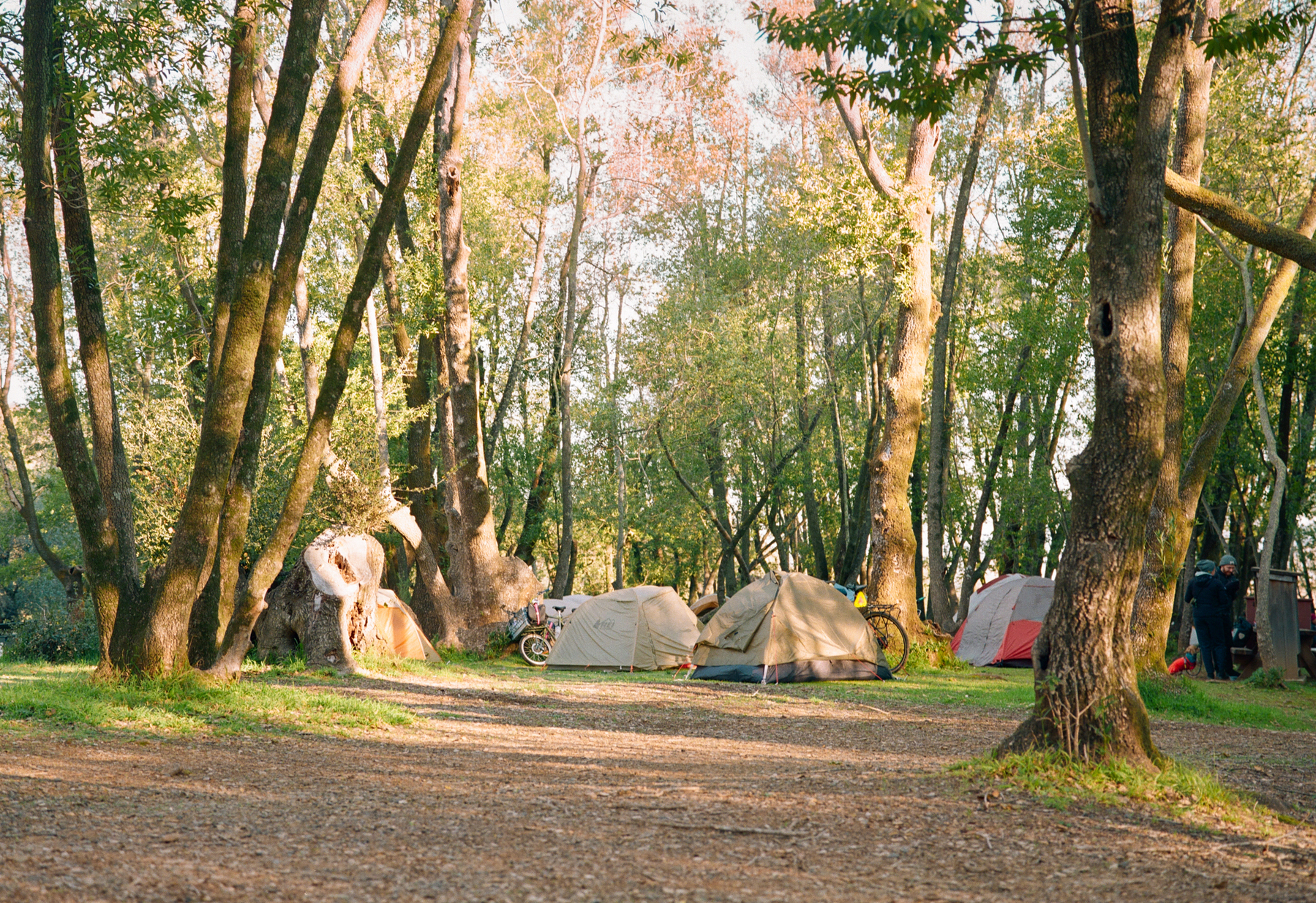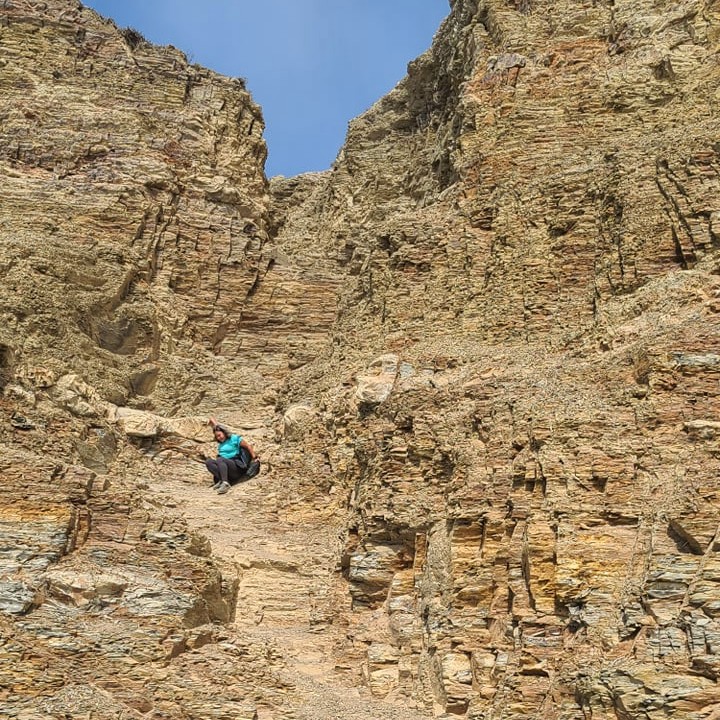I can't say I've been away from my phone or Mac for more than 24 hours, not at any point in the last 10 years. I can't say I have at all. They feel like such natural extensions of my arm, they are almost artificial appendages themselves, not just of my body but also of my brain. I needed to switch off and I needed a drastic way to do it.
Which is the backstory behind why I found myself living in a hut like the above.
170 km and 2 hours northwest of Stockholm, lays a little town called Skinnskateberg. Its pronunciation eludes me, and still does; somewhere between a huin and a hun instead of skinn. I'll take whatever you throw me, Sweden, but your compound sounds and accents are something I'll never get (I've just learned how to pronounce Nässjö… Promptly forgot it too).
When some Stockholm friends wanted to know my weekend plans, I told them I was going to be in Skinnskateberg, only to find most of them had never heard of it. I'm pretty sure it wasn't my pronunciation too, because I showed it to them on the map.
I was only headed there because of one thing: my need to be one with nature, in a way I knew how.
Ever since I got sick, I've been struck with the overwhelming need to go be one with nature. I can't explain it, and I can't reject it. After rejecting nature all my life (damn the insects and sweatiness of the tropics), I now want to do it all: camp, start fires, cook in the open, fetch water from natural water sources, and whatever else my city slicker mind romanticised.
So off to Skinnskateberg I went. Why there, of all places, instead of the far north? My metrics for selecting this place were simple: I didn't want to freeze my bits off, didn't want to have to pack snow shoes, knew I couldn't pack a winter-ready tent or sleeping bag (can't justify the cost of one), and I needed to be close enough to the middle to travel south to Malmö afterwards.
Which left just one place: Kolarbyn, near Skinnskateberg.
I wanted to go to Kolarbyn because it promised no electricity, no running water, and a series of huts that resembled hobbit holes, to my untrained eye.
Of course they were just replicas of the huts that the charcoal-burners of the region once lived in, hundreds of years ago, first built to educate the modern crowd about the area's history after the industry died, then turned into the eco-lodge it now is.
Kolarbyn proudly advertises itself as "Sweden's most primitive hotel", and they'd be right.
I booked myself on a two night stay there. Though I freaked out a little when I was told I would be alone all throughout the three days, things quickly worked out when I found Roxanne, an ex-classmate now working in Stockholm, would join me on my unconventional Easter break.
I was enamoured by the romance of the whole set up, but I worried about the details: how would I do with starting fires? What would I eat? How would I chop wood? What water would I drink? How would I even get there? I wrote emails to Andreas, the owner of Kolarbyn, pleading Asian virginity in the Scandinavian outdoors, and asked him to please show me how to do everything once. His Swedish efficiency of language and character was a simple, reassuring "don't worry about anything."
As it turned out, Andreas himself is ex-Swedish military, almost like a more realistic Bear Grylls (arguably better looking too). I mean, the man teaches courses teaching people how to start fires without anything, how to forage, and survive in the cold wilderness — I could not ask for a better teacher. He had me starting fires successfully in something like 5 seconds. Which just does not happen with me, usually. With non-digital skills I usually have the mental and psychomotor facilities of a five year old child, possibly worse.
He showed me the stream, from which I would fetch water, in which I would wash my cooking utensils; at which I could optionally clean myself, an option I would decline as I did not want to go home in a freezer (not to be morbid, but I'm just learning to deal with the cold and I really need more time when it comes to being in a frigid and cold body of water).
The communal fireplace was where all the cooking would take place. Though I was alone on the first night (Roxanne was to join me the second morning), I was lucky that I had a Swedish couple for company. I could not have asked for a more Swedish experience: we shared cans of Sofiero, they fed me grilled choco-bananas, and one of them even worked with Roxette. I cooked a simple pasta with mushrooms and asparagus, and dinner I made myself has never tasted as wonderful. The wilderness helps you redefine everything, including food — slow food with slow sources of fuel is indefinitely slow, slower, slowest.
My little hobbit hole, all mine for the first night, was called Botvik. All the huts have old names — such as Olof. Mine, Botvik, sounded less of a hulk than Viking-sounding Olof, and more of a bumbling little Viking version of Baldrick, which suited me fine. The Swedish couple complained that the huts were smaller than they looked online. Since I was expecting, and hoping for, a hobbit hole, Botvik was my idea of a dream come true.
Sheepskin was laid out on each side, on which a warm, winter-ready sleeping bag would go. The fireplace was a small, but sturdy little box that would be my best friend for the next two nights. A large stone apparatus enveloped the fireplace, and I came to think of it as a convection oven for my warmth.
I was worried I would be cold, but I was far from cold. The fires I started, and nurtured in Botvik were enough to keep me plenty warm at night and to keep me returning to all through the day. I was especially happy to return to the warmth of my hut after a morning hike to the compost toilet, and after the temperatures sank at nightfall.
Can it be that we have a genetic disposition to watching fires, and to wanting to make them bigger? Asked another fellow camper the next night. We had no answer, Roxanne and I, for we were busy learning about snus and stuffing our faces with soup and pork, but I certainly think he has a point.
Having never come close to a fire, or a fireplace before — I mean I do come from that breed of urbanites for whom sparkles are not good sounds, and who feared fire — fire became my best friend. Not necessarily in a pyromaniac sort of way. Fire draws you, in an elusive but unforgiving way. You can't not look at it. You need it. Everyone can have it, but not everyone can build the right kind of fire. It sounds base and primal, but it made me think about what little our primitive ancestors had and how they made use of what they did have; fire really does change everything. Not having my phone or Mac around was totally okay, then; we joked that every time we go out camping we sit around fires watching wilderness tv.
It's a channel I'm starting to get used to, I think.

